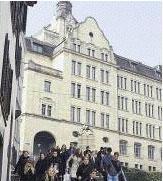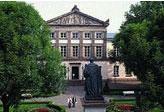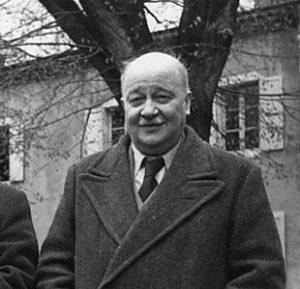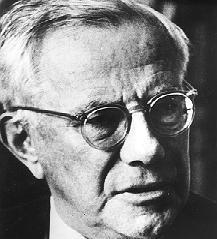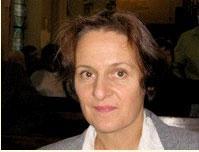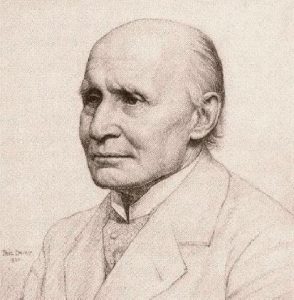Family and studies
Karl Barth was born in Basel on 10 May 1886. His family on his mother’s side, the Sartorius partly allied to Jacob Burkhardt, and on his father’s side comprised many university scholars and reformed pastors, who all rather criticised the liberal Protestantism trend. After his secondary school studies in Bern, the young Karl Barth began his theological studies in the same city. Shortly after, he went to Berlin and was a student of Adolf von Harnack (1851-1930), one of the brightest leaders of the historic-critical School and of liberal theology. Karl Barth also studied in Tübingen and Marburg, where he was taught by Wilhem Hermann (1846-1922) whom he constantly referred to later on. Besides studying contemporary theological works, he also constantly read Calvin and claimed a reformed confession.
The Safenwill parish
He was an editor with the magazine of the university in Marburg Die Christlische Welt (the Christian World) for a while, and was then appointed pastor of the parish in Safenwill, a small industrial city in the northern Swiss-German region called Argovie. He was confronted to the everyday industrial work of his parishioners, and to its difficulties and injustices. He was then deeply involved in the Social Christianity theology, and as a citizen, he became a member of the Swiss social-democrat party alongside social Christians.
There he heard about the declaration of war in 1914. As a Swiss citizen he could not be drafted. But he was baffled by the spreading of the global conflict, which he considered unacceptable. He disapproved of the often simplistic and rushed preaching in churches, advocating bellicose nationalism, while the ins and outs of the conflict were neither clear nor legitimate. Barth then engaged in a struggle against what seemed to him a dangerous “misery” of preaching. That struggle meant going back to biblical reflection and to a demanding theology that was the only way to enable re-establishing meaningful questions. The first step was a long commentary of The Epistle to the Romans -Der Römerbrief-. It was first published in 1919, and immediately called forth quick debates, especially among the liberals close to Kulturprotestantismus. During the conference in Tambach, the liberal audience was surprised by the words of the speaker whom they considered to be one of them. The first edition was soon to be followed by a second one in 1921, the foreword of which clearly stated their requirements. Karl Barth then left his Safenwill parish to teach reformed theology at Göttingen University, at their request.
His ministry developed within the university and in his international commitment with students and ecumenical groups. After Göttingen he was appointed professor of systematic theology in Münster in 1925, and then Bonn in 1930. He was dismissed in 1934 by the Nazi authorities, and then appointed in Basel where he taught until 1962.
These activities never prevented him from preaching in many places and under various circumstances. He frequently preached in the Basel prison “Aux captifs, la liberté”(“Freedom for the captives”), translated into French in 1960.
After the Commentary on the Epistle to the Romans (Der Römerbrief)
In the Römerbrief Karl Barth called for critical vigil of the Church against false beliefs adopted before the war. For instance he deemed that progress in knowledge and techniques was a sufficient and clearly defined condition of progress throughout history, and a testimony of God’s blessing.
Later on he never once wavered from a strict notion that theology was an autonomous subject, not related to philosophy, anthropology, social sciences, and not to be mixed with them. Interweaving fields would quickly lead to forgetting that God is not the order of the world, and to underestimating what God’s award of liberty to men implies – notably their responsibility in global history ; as well as all the elements claiming an autonomous moral law, which could be directly available. The autonomy of theology, however, should not be mistaken for literal biblical fundamentalism which would disqualify the use of reasoning and its efficacy in scientific progress.
Such were the strong points of his teaching in Göttingen, particularly of his courses dealing with the history of theology since the 18th century. He also took part in many work groups with his former peers, such as F. Gogarten (1887-1968), R. Bultman (1884-1976) and G.Dehn (1882-1970) and founded with them the magazine Zwischen den Zeiten(In-between times). Until 1933, he published many articles in it, but they were often considered common. One of the main debated themes referred to reading biblical texts from a situational point of view.
"Deciding hic et nunc for the Kingdom of God and his justice"
Barth never underestimated the difficulty of reflection in and for the present, based on the ancient texts from the bible.
Many of his colleagues or contemporaries believed that the words of the biblical message constituted a moral obviousness.
Bath’s opinion, which he explained in the foreword to the second edition of the Commentary on the Epistle to the Romans and many later works, was that biblical texts, diversified as they may be, showed “the line of truth as a jagged line”. Thus they should be read and reflected upon in situation and with respect to their contents, i.e. making room for their inner dynamism.
This point of view did not leave out the progress of exegesis. It was obvious and important to acknowledge that biblical texts were written at different times, and in different styles ; it was also obvious, important and not to be forgotten that Christ lived during a historical period, all the more as it helps us understand what Christ meant to say. This very fact of Jesus preaching in his day and age compels us to read the scriptures with our present situation in mind. The strictness of this approach can deeply upset certainties derived from good intentions, authentic as they may be. The dynamism of predication implies wondering what justifies, considering the hic et nunc, a long-term action concerned with justice and fraternity, with what it reveals of the real context which is not easy to decipher, and the surprising ways it moves forward in unexpected ways.
The concrete application of this theological stand rather surprised his interlocutors. Barth actually opposed the autonomy of the moral law to theology. He thus seemed to narrow the margins of individual freedom of action, as supported by the progress of the scientific languages and techniques. Far from questioning progress, Barth merely recalled that scientific truth was not a moral law ; in other words that no practical rule of behaviour could be derived from scientific truth. The ethical problem could not be based on intentions, but on determined attention paid to social complexity. Such a claim gave rise to debates. What good would it do in case of concrete emergencies, some asked ?
In the early thirties, the theologian Paul Tillich reproached Barth for not pledging his notoriety as a theologian to an open participation to anti-Nazi demonstrations on the streets. Karl Barth answered this criticism and some others in the Barmen Confession, the manifest of the confessing church, and in his unrelenting struggle against Nazism.
The confessing church and opposition to Nazism
One of the first resistance actions, after the Nazi State had taken over the administration of the German protestant churches – DEK had become Deutschenchristen -, was effected by pastor Martin Niemöller (1892-1984) in the Summer of 1933 ; and he immediately was supported by many pastors and lay people of the Pfarrernotbunb (distress pastoral alliance). It was an opposition to the Nazi pretension to apply the “Aryan principle” to the Church, which meant forbidding any pastor of Jewish origin to practise a ministry. This initiative was very quickly and widely extended by pastor Dietrich Bonhoeffer (1906-1945) to the whole Jewish problem. Its consequence was the meeting of several free synods attended by pastors and parishes who refused to surrender to the ideological requirements of Nazism. The most important and famous synod was the one held at Barmen from 29 to 31 May 1934 during which the confessing Church (Bekenntniskirche) was created. After lengthy discussions, the participants adopted a declaration often called the Barmen Confession, greatly inspired -and-written- by Karl Barth. At the beginning it recalled that
“Jesus-Christ as testified in the Holy Scripture is the unique Word of God we should listen to, and which we should confide in and obey in life and in death.”
Such phrasing involved firm adjustments and rejections of the Nazi pretensions :
“We reject… the false doctrine stating that the Church could give itself or be given rules by chiefs with dictatorial power, outside the ministry.”
Though not all participants agreed on the theological texts in the declaration – some deemed it too far from the breakthroughs of liberal theology – the declaration was unanimously accepted.
Karl Barth was immediately dismissed from his position in Bonn, and then declared undesirable in Germany. He went on teaching at Basel University, a position he held until he stopped working.
He was an unrelenting opponent to Nazism and ceaselessly warned the Germans, the French and all those who lived in occupied countries during WWII, as well as his Swiss fellow citizens – A Swiss voice, 1944.
After 1945
After the war, Barth pursued his ministry as a sentinel in a fast changing world. The economy was thriving in the West torn apart by the cold war, and with lots of dark and obscure zones.
In October 1945 during a moving meeting called for by pastor Wilhem Visser’t Hooft with some representatives of the allied countries, his friends of the confessing church, now in charge of the new German Evangelical Church (EKD), pronounced an impressive Declaration of guilt :
“We are deeply sorry to declare that through our fault, inexpressible suffering was inflicted on many peoples and countries…Though we fought for many years in the name of Jesus-Christ against the spirit which was dreadfully expressed in the tyrannical national-socialist regime, we accuse ourselves of not having professed with more courage, not having prayed with more faithfulness, not having believed more radically and not having loved with more ardour. Our Churches now need a new beginning.”
In 1948 he took part in the Amsterdam Assembly during which the organisation was officially created. He had been invited by pastors Wilhem Viser’t Hooft and Marc Boegner – respectively Secretary General and president of the future Ecumenical Council of Churches. He delivered a speech pleading for the renewal of the Church as the “living congregation of Jesus-Christ, the living Lord, which should be kept free, vigilant, and ready to meet the ever renewed demands of its Lord.”
During the cold war, in his various public addresses, he was “non-aligned” as countries which did not belong to the NATO, or the Warsaw Agreement were called. Thus he made a lot of contacts with al the Churches in the East and the West- as his letter to a pastor in the Democratic Republic of Germany said-, and never stopped relating human actions to listening to God’s Word, a word no one in the world can claim as his, a word that encourages constant reflection on the operating conditions and the responsibilities they imply. As early as 1961 and on other occasions later on, he paid homage to the Vatican II Council, though he had often criticised the Roman Church, and to the self-criticism the Catholic Church had started doing.
He died suddenly on 10 December 1968 as the western world seemed to have assured its future with progress, and with the theological virtues of optimistic and confident liberalism. In such a context many considered him a man of the past, with useless pessimistic views. The debate is still going strong about a work which belongs to the great theological tradition of Christianity, of Saint Augustine, Saint Anselm, Saint Thomas, Saint Francis of Assisi, Luther and Calvin.


